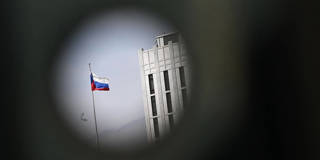OnPoint Subscriber Exclusive
Longer Reads provide in-depth analysis of the ideas and forces shaping politics, economics, international affairs, and more.

How Russia Survives
For the last 14 months, the world economy has undergone an unprecedented experiment: severing trade, financial, and personal links with a country that spans 11 time zones and sits at the heart of globalization. Can it really work?
ROME/BERLIN – This year, according to the International Monetary Fund’s latest forecast, Russia’s economy will grow faster than that of Germany or the United Kingdom, and will keep pace with growth in France and Italy. Its economy is thus expected to hold its own against, or even outpace, four of the G7 countries that have been leading efforts to maintain and strengthen the crippling international sanctions imposed on Vladimir Putin’s regime more than a year ago, following Russia’s full-scale invasion of Ukraine.